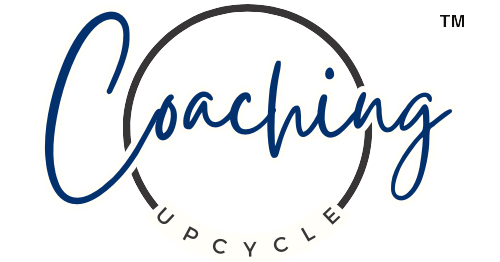
Setting and Achieving SMART Goals: A Guide for Your Career
Navigating the complexities of career development often feels like charting a course through uncharted waters. How do you ensure that your career aspirations are not mere dreams but achievable milestones? Enter SMART goals—a time-tested framework that brings clarity, focus, and direction to your career planning. This guide delves into the art of crafting SMART goals, offering practical strategies and real-world examples to help you pave a clear path toward professional success.
Understanding SMART Goals: The Foundation of Success
SMART goals stand for Specific, Measurable, Achievable, Relevant, and Time-bound. This framework is designed to provide a clear structure for setting and attaining goals. Let's break down each component:
Specific: Goals should be clear and precise, defining exactly what you aim to achieve. For instance, instead of saying "I want a promotion," specify "I want to be promoted to a senior project manager role within the next 12 months.”
Measurable: Goals should be quantifiable to track progress and success. Use metrics such as percentages, numbers, or milestones. For example, "Increase my sales by 20% in the next quarter.”
Achievable: Set realistic goals that challenge you yet remain attainable given your resources and constraints. Unrealistic goals can lead to frustration and burnout.
Relevant: Ensure your goals align with your broader career objectives and personal values. For instance, pursuing a certification that enhances your current role's skill set.
Time-bound: Set a deadline to create urgency and keep yourself accountable. Deadlines help prioritise tasks and maintain momentum. SMART goals are essential for career planning as they break down larger aspirations into manageable steps, providing a roadmap for success.
Crafting Specific Career Goals: Clarity is Key
Clarity in goal-setting eliminates ambiguity and focuses your efforts on precise outcomes. Here are some techniques and examples:
Techniques for Defining Clear Goals: Start by asking the "Five Ws": Who is involved? What do I want to achieve? Where will this take place? When do I want to achieve this? Why is this goal important? Examples Across Industries:
Tech Industry: "Learn Python programming and build a machine learning project within six months to qualify for data scientist positions.”
Healthcare: "Complete certification in Advanced Cardiac Life Support (ACLS) within the next three months to enhance emergency care skills."
Measuring Progress: Tracking Your Journey
Tracking your progress keeps you motivated and helps you adjust strategies as needed. Here are some methods and tools:
Setting Measurable Milestones: Break your goal into smaller, measurable steps. For instance, if your goal is to become a project manager, your milestones might include completing a project management course, gaining experience in managing small projects, and applying for project manager positions.
Tools and Apps: Utilise tools like Trello for task management, Toggl for time tracking, and GoalBuddy for setting and tracking goals. These tools help visualise progress and keep you on track.
Ensuring Achievability: Setting Realistic Career Targets
Balancing ambition with realism is crucial for sustained progress. Here are some strategies:
Strategies for Achievable Goals: Assess your current skills, resources, and constraints. Set goals that challenge but do not overwhelm you. For instance, if you're new to public speaking, aim to speak at smaller events before targeting large conferences.
Balancing Ambition and Practicality: Aim for a mix of short-term and long-term goals. For example, a short-term goal could be to complete a certification, while a long-term goal could be to become a department head.
Relevance and Alignment: Connecting Goals to Your Career Vision
Ensuring that your goals align with your long-term career vision and personal values keeps you motivated. Here’s how to maintain relevance:
Aligning with Long-Term Vision: Reflect on your career aspirations and values. Are your goals moving you toward your ultimate career destination? For example, if you value work-life balance, aim for roles that offer flexibility.
Techniques for Maintaining Relevance: Regularly review and adjust your goals to stay aligned with your evolving career path and personal growth. Conduct periodic self-assessments to ensure your goals still resonate with your vision.
Time-Bound Goals:
Creating a Sense of Urgency Deadlines are crucial for maintaining momentum and avoiding procrastination. Here are some tips:
Importance of Deadlines: Deadlines create a sense of urgency and help prioritise tasks. They provide a timeframe within which to achieve your goals.
Tips for Realistic Timelines: Break down your goal into smaller tasks, each with its own deadline. This makes large goals less daunting and more manageable. For example, if you aim to write a book, set deadlines for completing each chapter.
Overcoming Obstacles: Strategies for Staying on Track Anticipating and overcoming obstacles is key to maintaining progress. Here’s how:
Identifying Barriers: Common barriers include lack of time, resources, and motivation. Recognise these obstacles early. For example, if you have limited time, plan your tasks around your most productive hours.
Strategies for Overcoming Challenges: Develop a plan that includes seeking support from mentors, breaking tasks into smaller steps, and maintaining a positive mindset. For instance, if you're struggling with a specific skill, seek training or mentorship.
Deep Listening vs. Active Listening
Understanding the nuances between deep and active listening can enhance your ability to support clients effectively. Here's the differentiation:
Deep Listening: Involves fully immersing yourself in the conversation, understanding the underlying emotions and motivations. It's about connecting with the speaker on a profound level.
Active Listening: Focuses on understanding the speaker's words and providing feedback. It involves techniques like paraphrasing and reflecting to ensure comprehension.
Continuous Improvement of Active Listening Skills Continuous improvement is vital for mastering active listening. Here's how to stay sharp:
Self-Reflection and Feedback: Regularly reflect on your listening skills and seek feedback from peers or mentors. Use this feedback to identify areas for improvement.
Tools and Resources: Utilise books, courses, and workshops to enhance your skills. Books like "The Art of Listening" by Erich Fromm and "You're Not Listening" by Kate Murphy offer valuable insights. Online courses from platforms like Coursera and Udemy also provide structured learning paths.
Supervision and Mentorship: Engaging in supervision or seeking a mentor helps refine your skills through guided practice and feedback. Setting SMART goals is crucial for effective career planning and achievement. Here are some tools that can assist you in creating SMART goals and tracking your progress:
1. Template.net: Template.net offers a variety of editable templates for SMART goals and other business-related templates. These templates are designed to help you define specific, measurable, achievable, relevant, and time-bound objectives tailored to your needs. Visit template.net SMART Goals Templates to explore the options available.
2. Smartsheet: Smartsheet provides a comprehensive collection of free SMART goal-setting templates suitable for various industries and purposes. Whether you're an individual or a team, Smartsheet's templates can guide you through the process of setting and achieving your goals effectively. Check out Smartsheet SMART Goals Templates for more details.
3. HubSpot: HubSpot offers a downloadable SMART goal-setting worksheet that helps users navigate the goal-setting process step by-step. This worksheet includes fields for defining specific objectives, measuring progress, and setting realistic deadlines. Visit HubSpot SMART Goals Worksheet to access their template and start setting SMART goals today.
4. MindTools: MindTools provides practical guidance on setting SMART goals, along with a downloadable template to facilitate the process. Their resources are designed to help individuals and teams clarify objectives, track progress, and stay focused on achieving results. Visit MindTools SMART Goals Template for more information and to download their template.
5. Trello: Trello is a popular project management tool that allows users to create and track SMART goals using customisable boards. By organising tasks and milestones on Trello boards, individuals and teams can visualise progress, collaborate effectively, and stay motivated towards achieving their goals. Visit Trello to learn more about how to set up goal-tracking boards.
6. Asana: Asana is another robust project management platform that supports teams in organizing, tracking, and managing their work. It includes features specifically designed for setting and tracking SMART goals, such as task assignments, deadlines, and progress monitoring. Visit Asana for details on how to leverage their platform for effective goal setting and achievement.
These tools provide valuable resources and templates to help you structure your goals according to the SMART criteria and track your progress towards success. Explore these options to enhance your goal setting process and improve your career planning efforts.
Setting and achieving SMART goals is a powerful strategy for career development. By breaking down your aspirations into specific, measurable, achievable, relevant, and time-bound steps, you can create a clear and actionable roadmap to success. Whether you're aiming for a promotion, seeking to develop new skills, or planning a career shift, SMART goals provide the structure and motivation needed to achieve your objectives. Remember to regularly review and adjust your goals, stay focused on your vision, and seek continuous improvement to navigate your career journey successfully.
References:
1. SMART Goals: Definition and Examples- Mind Tools
2. Setting Specific Goals: Examples Across Industries - The Balance Careers
3. Tools and Apps for Tracking Goals - Zapier
4. Strategies for Achievable Goals - Harvard Business Review
5. Aligning Goals with Your Career Vision - Forbes
6. The Importance of Deadlines in Goal Setting - Psychology Today
7. Overcoming Obstacles in Achieving Goals - SUCCESS
8. Deep Listening vs. Active Listening - Harvard Business Review
9. Books on Active Listening - Book Riot
10.Online Courses for Improving Listening Skills - Coursera
11.Template.net. (n.d.). SMART Goals Templates. Retrieved from Template.net SMART Goals Templates
12.Smartsheet. (n.d.). SMART Goals Template. Retrieved from Smartsheet SMART Goals Templates
13.HubSpot. (n.d.). SMART Goals Worksheet. Retrieved from HubSpot SMART Goals Worksheet
14.MindTools. (n.d.). SMART Goals: How to Make Your Goals Achievable. Retrieved from MindTools SMART Goals Template
15.Trello. (n.d.). Trello. Retrieved from Trello
16.Asana. (n.d.). Asana. Retrieved from Asana
